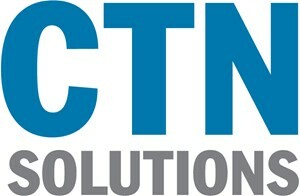Many industries depend on their IT working properly to function as intended, and healthcare is among them. Prior to 2009, information technology had failed to take root, but with the passing of the Health Information Technology for Economic and Clinical Health Act (HITECH Act), the health industry is much more involved and reliant on IT than ever.
Electronic medical record technology is partially responsible for this rapid adoption, as it has made record keeping much easier for the healthcare industry. Since healthcare is a private industry, a system that can store patient and insurance data in a central location that can easily be accessed is critical to its success. This is one of the most important reasons why the healthcare industry suffers from some of the largest and most expensive data breaches out there, exposing countless medical and financial records for millions of patients.
Hoping to find a better way to keep data safe and secure from external threats, healthcare professionals are looking to alternative ways to store data so that it’s located in an environment where it is both secure and easy to distribute. When you take into account all of the other problems associated with healthcare, such as standards of care and rising costs, it’s clear that finding a way to keep data secure and accessible, while also not stifling innovation, is critical.
The Blockchain Might Be the Answer
An emerging technology called blockchain could be one of the best ways to solve the current healthcare technology issues. Many people know of blockchain as the tech that makes cryptocurrency possible, but it’s being looked at to solve serveral issues associated with healthcare technology. The distributed ledger and technology behind it make it ideal for sharing information to a certain extent. Developers know that doctors, insurance agencies, and patients need access to this information, and the blockchain can provide this while guaranteeing data integrity. While it isn’t all great for the blockchain’s use in healthcare, there are various benefits that the blockchain can provide:
- Medical records: Once a medical record is completed, it is placed as a node into the blockchain. This effectively guarantees the authenticity of the record. The distributed nature of the blockchain allows the patient control over medical and insurance information rather than have it be hosted by the care provider.
- Consent: Blockchain-based applications for consent management can potentially create a standard for these practices. A doctor or insurer might need access to records, so a patient can provide their consent through the blockchain as it’s needed.
- Medical rewards: Patients might be able to reap rewards and enjoy incentives for using this blockchain technology for their health records. This would be able to promote the solution to the rest of the industry, allowing for reduced costs in the long run.
While the blockchain might still be a developing technology, it could save the healthcare industry lots of time and resources in the future. What are your thoughts on these developments? Let us know in the comments, and be sure to subscribe to our blog.
